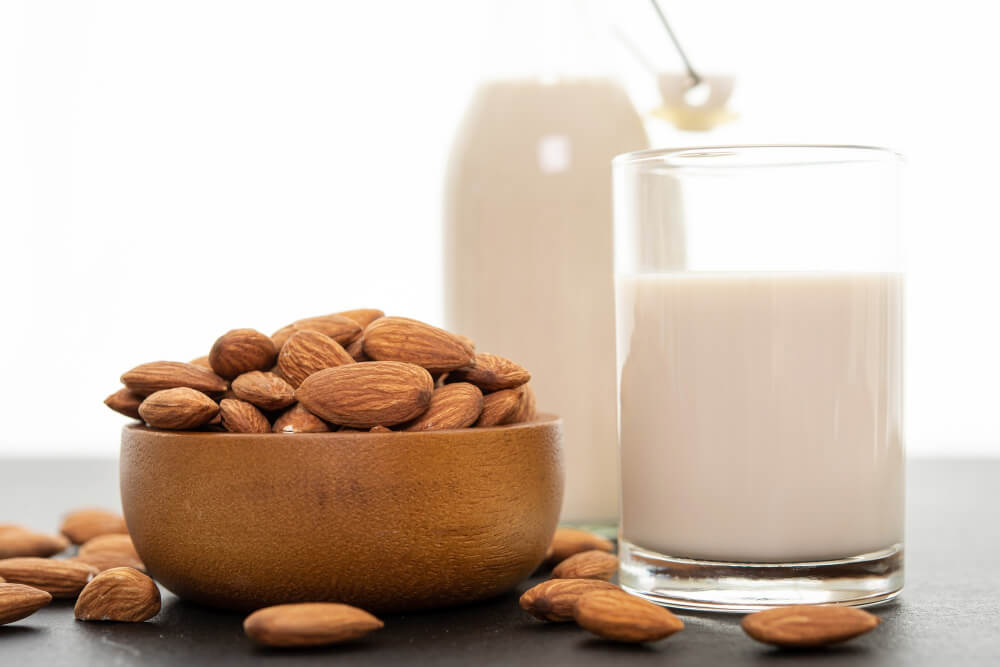The global supply of almond milk has experienced a significant shortage, raising concerns among consumers and businesses alike. Almond milk, a popular alternative to dairy milk for its health benefits and environmental sustainability, has become a staple in many households and coffee shops around the world. However, the shortage has been attributed to a variety of factors, including drought conditions affecting almond production in key regions, increased demand for plant-based milk alternatives, and logistical challenges in the supply chain.
As a result of the shortage, many retailers and food service providers are struggling to keep almond milk stocked on their shelves, leading to potential disruptions in the availability of this popular dairy alternative. Additionally, the shortage has also impacted the prices of almond milk, with some outlets reporting significant cost increases. This shortage has prompted industry experts and consumers to consider the long-term sustainability of almond milk production and search for alternative solutions to meet the growing demand for plant-based milk.
What Is Almond Milk?
Almond milk is a plant-based milk substitute made from ground almonds and water. It first became popular several years ago among those who were lactose intolerant or following vegan diets. Since then, it has exploded in popularity among mainstream consumers as well.
Almond milk has a creamy, nutty flavor and can be used as a substitute for cow’s milk in most recipes and beverages. It is lactose, soy, and gluten-free, making it a good option for many people with dietary restrictions. It also contains some beneficial nutrients like vitamin E, calcium, and protein. Over the past five years, almond milk sales have grown over 250% as it has become a staple in many households.
Is Almond Milk Shortage?
Yes, there is an almond milk shortage. The interest in almond milk has expanded altogether lately, while the stock has not kept up. This is because of various variables, including the significant expense of almonds, the water-escalated nature of almond cultivation, and the way that almond trees require quite a while to develop. Accordingly, almond milk costs have expanded, and there have been deficiencies in certain areas of the planet.
This has made it difficult for regular almond milk consumers to find their preferred brands in stock. Reports from major retailers confirm that almond milk sales exceeded expectations this year, leading to supply chain issues and regional shortages across grocery stores. With almond milk demand higher than ever, producers and suppliers have struggled to keep up. While more temporary shortages are likely, experts say the almond milk supply should stabilize over the next few months as production catches up with demand.

Reasons For The Almond Milk Shortage
A few key reasons are contributing to the current shortage of almond milk:
1. Surging demand
Demand for almond milk has skyrocketed in recent years as more consumers seek out plant-based options. This sudden increase in demand has outpaced supply.
2. Supply chain disruptions
The COVID-19 pandemic severely disrupted supply chains across the food industry. This impacted the production and transportation of almond milk, exacerbating supply issues.
3. Almond supply
Drought conditions in California where almonds are grown have impacted crop yields. With fewer almonds being produced, there are limitations on almond milk production.
4. Labor shortages
Like many industries, almond milk producers are impacted by labor shortages, making it difficult to keep up with demand. The lack of truck drivers and production workers creates bottlenecks.
How Is Shortage Impacting Consumers?
The almond milk shortage has left many consumers frustrated as their favorite milk alternative has become difficult to obtain. For regular almond milk drinkers, the shortage has meant:
Paying more: With limited supply, some stores have increased prices on alternative milk including almond milk, leaving consumers paying 20-30% more.
Switching brands: Those who have brand loyalty have had to switch to whatever almond milk brand is available, even if they don’t prefer the taste or quality.
Less variety: Stores have had to limit almond milk options, carrying only one or two brands versus the typical five or six. Shoppers have fewer choices.
Making substitutions: Some consumers have had to temporarily substitute almond milk for other plant-based milk like oat or soy milk.
While inconvenient for many almond milk consumers, experts say the shortage should be temporary if the production and transportation of almond milk can catch up with the exceptional demand. But in the meantime, those who rely on almond milk in their diets may need to adjust and make do until their favorite cartons and bottles return to store shelves.
What Are The Alternatives To Almond Milk
With almond milk in short supply, consumers are seeking plant-based milk alternatives. The following are a couple of top decisions to consider:
Oat milk offers a creamy, mild flavor and has quickly become a top choice. It works well in coffee drinks with its frothy foam. Brands like Oatly have made oat milk a mainstream staple. The texture is smooth and it contains fiber. For those seeking nut-free or gluten-free options, oat milk checks both boxes.
Soy milk has been around for decades and has a higher protein content than other plant milk. The flavor is relatively neutral. It works well for drinking, baking, and adding to cereals or smoothies. Organic options avoid GMOs. Those with nut allergies often rely on soy milk when almond milk is not available.
Rice milk provides a very mild flavor and lighter consistency. It won’t overpower coffee or tea. People with nut allergies often use rice milk too. Look for unsweetened or lightly sweetened varieties. Avoid added gums or oils. Rice milk tends to be lower in protein than other plant milk.
Coconut milk has a creamy texture and tropical flavor. Full-fat coconut milk works well for cooking and baking. But beware of added sugars. Lower-fat coconut milk is better for drinking. Shake cans well before pouring. Coconut milk has risen in popularity along with almond milk.
Conclusion
The almond milk shortage took many consumers by surprise as the popular plant-based milk vanished from grocery stores over the last several months. Caused by surging demand, supply chain issues, almond crop problems, and labor shortages, the shortage has made almond milk difficult to find for regular drinkers.
While frustrating, experts say supply should stabilize over the next few months. In the meantime, consumers may need to pay more, switch brands, substitute other milk, or go without until the almond milk supply meets the unprecedented demand. The almond milk craze doesn’t appear to be going away anytime soon, so producers will need to ramp up production and transportation to keep their milk alternatives flowing.
FAQs-Almond Milk Shortage
What Is Causing The Almond Milk Shortage?
The shortage of almond milk in 2022 and 2023 is primarily due to supply chain issues affecting almond production. This has led to a scarcity of almonds, impacting the availability of almond milk in grocery stores.
Are There Any Alternatives To Almond Milk During This Shortage?
During the almond milk shortage, consumers can consider oat milk, soy milk, coconut milk, and other plant-based milk options as alternatives to almond milk.
How Is The Shortage Of Almond Milk Impacting The Dairy Industry?
The scarcity of almond milk has prompted some consumers to explore cow milk and other milk products due to the unavailability of almond milk, resulting in shifts in the dairy industry.
Can I Make My Almond Milk At Home To Address The Shortage?
Yes, making your almond milk at home can be a viable solution during the almond milk shortage. There are various methods and recipes available to find almond milk recipes and create homemade almond milk.
Has There Been A Surge In The Demand For Almond Milk, Causing The Shortage?
Yes, the demand for almond milk has contributed to the almond milk shortage as more consumers have embraced plant-based milk as a healthy alternative to traditional dairy products.
Will The Shortage Of Almond Milk Continue?
While it’s difficult to predict, continuous disruptions in the supply chain and almond production may lead to a prolonged shortage of almond milk.
Related Article:




